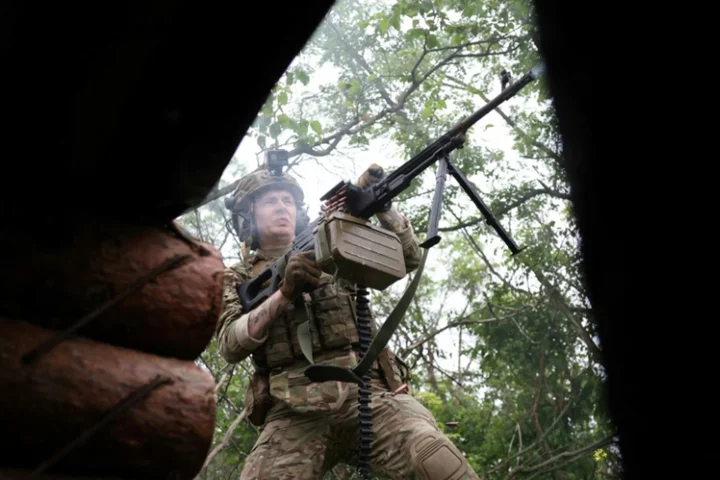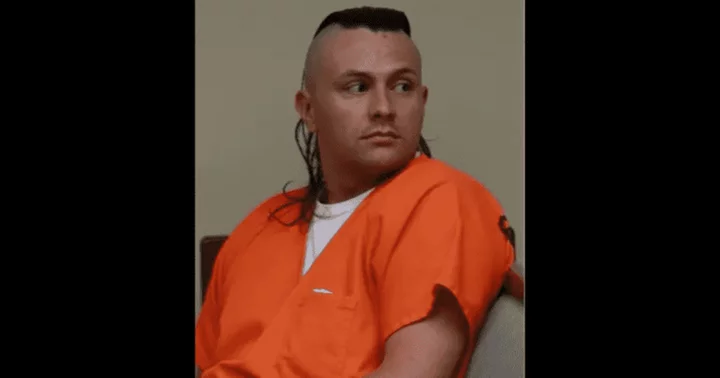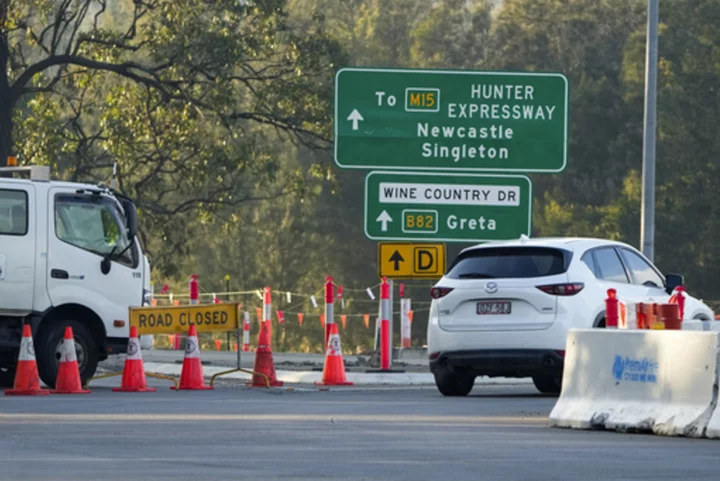More than a week into Ukraine's counter-offensive, Kyiv has reported modest gains, liberating eight settlements in the first cautious steps of a daunting fight back against entrenched Russian positions.
Much about Ukraine's progress is unclear but its ally Britain has said "both sides are suffering high casualties" and that "Russian forces often conduct relatively effective defensive operations."
Analysts also caution that NATO-trained and Western-armed brigades have not yet been fully committed to the fight and that some early assaults are only designed to find weak spots in Russian lines.
AFP journalists have recently visited Ukrainian positions along the front, from forested hills in the eastern Lugansk region through Donetsk to Orikhiv 230 kilometres (140 miles) west.
The snapshots give an impression of how successfully Ukrainian forces are moving forward and at what cost.
- First breakthrough -
Most settlements Ukraine says it liberated lie in the wooded and marshy valley south of Velyka Novosilka in the Donetsk region.
Here, soldiers of the 68th Jaeger ("Hunter") brigade said Russia put up fiercer than expected resistance in the village of Blagodatne, where Russian corpses lay where they fell and two-way artillery fire echoed.
"The regular Russian army was here," said a Ukrainian soldier known by his call-sign "Zahar", alleging professional Russian units were reinforced by prisoners recruited to fight.
"Commanders were from the regular army, and a lot of convicts."
Combat medic Vinni added: "It took two days to clear the area, because they had a lot of dugouts and passages. It was really difficult for our guys to kick them out of here."
The deputy commander of the brigade, using the call-sign "Lermontov", said the wider goal was to capture nearby Russian stronghold Donetsk.
- Early setback -
On June 8, when Ukraine was still reluctant to confirm the new operation, Russia said it repelled an armoured column near the front line south of Orikhiv.
Russian drone footage appeared to show several German-built Leopard mine-clearing tanks and US-made Bradley fighting vehicles damaged.
Ukrainian soldiers from the 47th Brigade resting at a cafe confirmed their motorised infantry company had lost most of its Bradleys, but insisted some were recoverable and that the brigade would fight on.
"In our unit, six out of ten Bradleys were wrecked, and three damaged," one infantryman said.
An officer separately said human casualties had been lower than feared thanks to the disabled Bradleys' tough armour.
Ukraine has since launched new attacks on the western and southern fronts and on Monday deputy defence minister Ganna Malyar said the village of Pyatykhatky had been liberated.
- Bakhmut battle -
The longest and bloodiest battle of the war so far has been the fight for the eastern city of Bakhmut, captured by Russian forces in May after months of slaughter.
Almost immediately, Ukrainian assault infantry backed by German artillery began pushing Russian troops from the town's flanks.
"They are the most active at night," a soldier with the call sign "Quiet" told AFP.
"You can hear the sound of the equipment, and if they speak loud, you can hear them as well."
A commander said Russian drones and gliding bombs dropped by planes out of Ukrainian air defences' range were taking a toll, but claimed slow, steady progress all the same.
- The next operation? -
Ukraine has not announced an operation in the eastern Lugansk region, but rumours of one already seem to have reached the Russians.
Infantry from the 100th Territorial Defence Brigade, recruited last year in western Ukraine near the Belarus border, are guarding trenches in the forested hills between Sloviansk and Russian-held Kreminna.
Officers said Russian shelling had fallen off last week since the offensive started elsewhere, and troops speculated to AFP that their foe was saving ammunition in expectation of attack.
"They are digging their trenches deeper," said a 47-year-old soldier known as "General" thanks to his greying beard rather than his rank.
Armed with a shovel, General was also digging so that soldiers at his position could walk to firing positions without crouching.
Artillery was audible some 700 metres and a minefield away from Russian positions, but a company commander known as "Tooth" said he suspected some of Moscow's forces had gone to deal with fighting in Belgorod district, inside Russia.
Russia has been confronted by cross-border incursions claimed by anti-Kremlin rebels, which some observers saw as a move to distract Moscow from Kyiv's planned offensive.
dc/jbr/lcm









